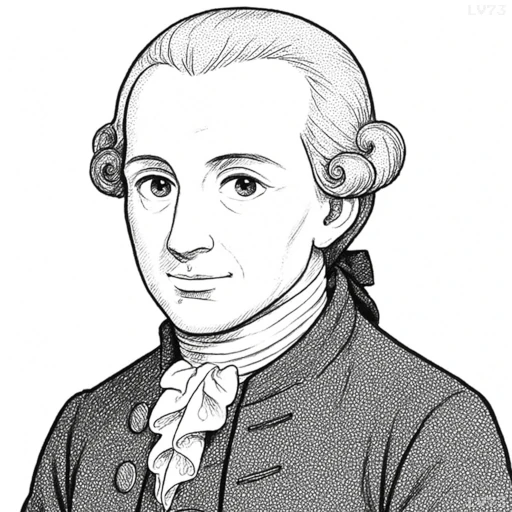“Thoughts without content are empty, intuitions without concepts are blind.”

- April 22, 1724 – February 12, 1804
- Born in Germany (East Prussia)
- Philosopher
table of contents
Quote
“Thoughts without content are empty, intuitions without concepts are blind.”
Explanation
In this quote, Immanuel Kant explores the relationship between thoughts (or concepts) and sensory experience (or intuitions). Kant argues that thoughts must be grounded in empirical content (sensory data) in order to be meaningful or capable of describing the world. Without this content, thoughts are empty, devoid of substance or relevance. Similarly, intuitions (the raw sensory experiences or perceptions we have of the world) cannot be understood without the concepts that organize and give them meaning. Without the application of concepts, intuitions are blind, as they lack the structure required to form coherent knowledge. Kant’s point is that both elements—concepts and intuitions—are necessary for human cognition, and one cannot function effectively without the other.
In the context of modern thought, this idea reflects the complex nature of knowledge and human perception. For example, scientific inquiry relies on both empirical data (sensory experience) and conceptual frameworks (theories and models) to generate knowledge. Without concepts, data would be mere sensory input, meaningless and difficult to interpret. Similarly, without sensory experience, concepts would have no grounding in the world. In fields like psychology, philosophy, and cognitive science, this dual necessity remains foundational in understanding how the human mind processes the world, emphasizing the interplay between our perceptions and the intellectual frameworks we use to make sense of them.
Historically, this statement marks a significant departure from earlier philosophical traditions. In the Enlightenment, philosophers like Kant sought to bridge the gap between empiricism (the idea that knowledge comes primarily from sensory experience) and rationalism (the belief that knowledge is derived from reason alone). Kant’s insight that knowledge arises from the synthesis of sensory data and conceptual understanding shaped much of modern epistemology and cognitive theory. Today, Kant’s view informs contemporary debates about how we know the world and how experience and reason work together to shape our understanding, from artificial intelligence to educational theory.
Would you like to share your impressions or related stories about this quote in the comments section?
